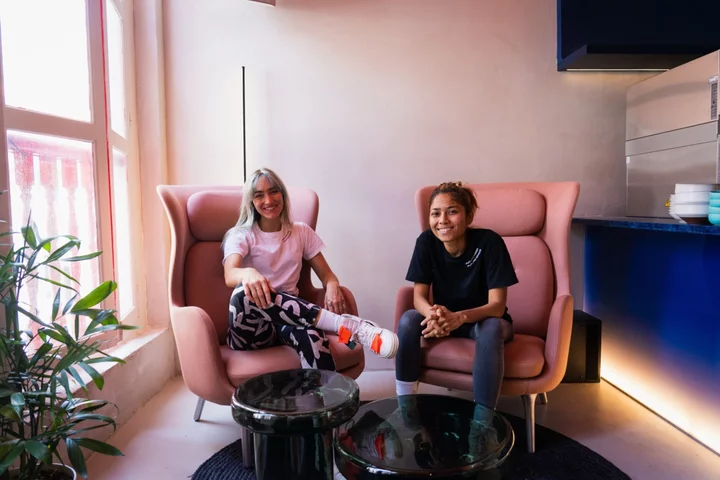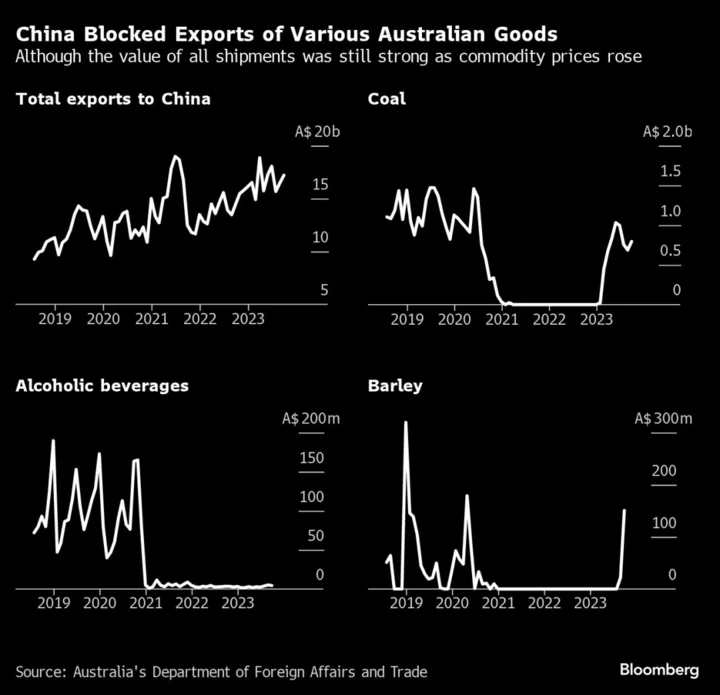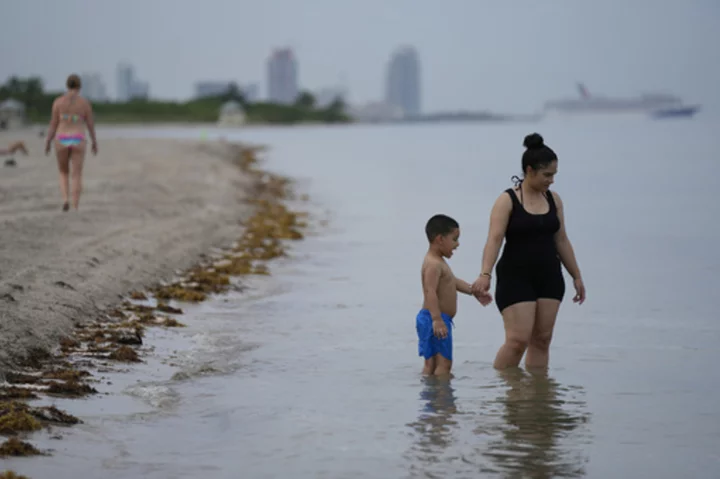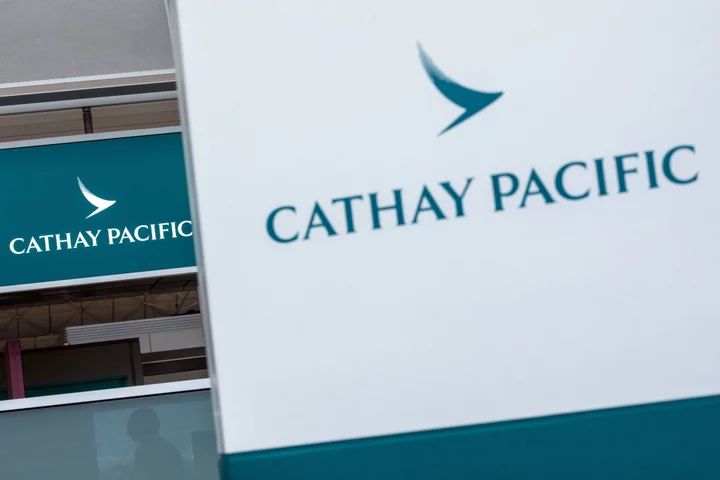Take a sip of one of Fura’s cocktails, and you’d be forgiven for thinking that it’s simply just a well-made libation in a fancy Singapore bar. But its simple appearance belies some surprising ingredients.
The martini features not olives as its centerpiece, but jellyfish and oil made out of seaweed. Another drink appears to highlight caviar—but rather than the valuable roe, it’s tiny balls of black garlic.
But the most attention-getting drink is a margarita made with stir-fried mealworms.
The twists aren’t there for shock value. The 60-seat Fura, which opened its doors in early September, is the latest experiment in one of the world’s most competitive drinking scenes. It blends sustainability with chic, even while having to stay profitable in Singapore, where the price of everything from raw materials to labor has jumped in recent years. To top it off, one of the most notable components planned for the menu—insects—can’t even be legally sold as food in the country yet.
Taking on this challenge are couple Christina Rasmussen and Sasha Wijidessa, who are both under 30 and already made names for themselves in the hospitality arena. Rasmussen was the head forager at Noma, the three-Michelin-star restaurant in Copenhagen. Wijidessa is Asia commercial director for the Danish spirit distillery Empirical, which is becoming internationally renowned for its unorthodox alcohol blends.They’re betting Fura’s menu—which they call “a journal of future food”—will woo a new generation of environmentally conscious drinkers and diners. Cocktails start at S$24 ($18) with names that are very much tongue-in-cheek and contain few traditional flavors.
The Caviar Papi, conceived to mock wasteful eaters, features a faux version of the delicacy that gives the drink a garlicky taste and creamy texture. The jellyfish martini has a distinct fishy taste, combined with hints of gin and salty seawater.
“We are very specifically not trying to have any cultural cuisine tied to us,” says Wijidessa. Fura, which means “pine” in Swedish, was conceptualized, she says, to put sustainability front and center. “We want to create a new ritual of eating and drinking that makes sense for now and in the future, because our resources are different now.”
Even coffee beans were rejected as an ingredient in one of their cocktails, because of concerns about the heavy use of water in their cultivation. The pair opted instead for an alternative version of “espresso” made from malt grains.
Achieving sustainability while maintaining the variety needed for a creative menu is a struggle in an equatorial city-state smaller than New York City. Singapore imports over 90% of its food and lacks the temperate climate to cultivate exotic produce.
Fura has sought local food sources—a Singapore-based hydroponic farm supplies the bulk of its vegetables—but it doesn’t come easy. Locally grown tomatoes don’t taste good, so they are lacto-fermented for days with MSG before being used in a cocktail humorously named Make Local Tomatoes Great Again.
The ultimate test, though, will be the multi-legged creatures slated for the menu. Eating insects is not unusual in Southeast Asia, but its sale for consumption in Singapore remains barred. Authorities are expected to approve 16 insect species before the end of this year.
Their approval will likely come with a few caveats: Wild harvested bugs will not be allowed, and hazard analyses will have to be conducted. And that’s even before one gets to the elephant in the room. Last year, as part of a public consultation that solicited feedback, some respondents said they “felt disgust” at the thought of consuming insects.
That hasn’t stopped Fura’s founders. In anticipation of its approval, they have sourced critters like grasshoppers and mealworms from a farm in Thailand and perfected the drinks and dishes that will spotlight them. At a recent preview tasting, the insects were very much hidden in plain sight.
There was little inkling of the minced crickets in a Peas in Threes vegetable dish, blending in with the other salty, crunchy components of a nutty-tasting garnish. In the Get the Worm cocktail, only a yellowish tinge and earthy flavor hints at the mealworms that were infused into the spicy, tangy margarita.
There are “different ways of manipulating it where you’re not staring at bugs in the eye,” says Rasmussen, so that it’s “familiar and tasty to most people.” A separate tasting menu is planned that will unapologetically feature insects front and center for more adventurous diners.
“Insect protein is something that we really want to work with because we think that’s kind of the next step,” says Wijidessa. “Singapore is a very young nation where you have a very big population that is open to change, so I am hopeful that it would pick up and become the norm.”
There’s little margin for error. Fura is joining a crowded cocktail scene that’s expanded massively in recent years. New entrants include quaint sit-downs such as speakeasy-style bar Night Hawk and extravagant venues like Atlas Bar, which features more than 1,300 types of gin housed in a stories-tall display tower.
Across the street from Fura is Native, a bar that opened in 2016 touting regional produce. It’s among the names that dominated this year’s ranking of Asia’s 50 Best Bars list from the World’s 50 Best organization. More than a fifth of the list hailed from Singapore.
It hasn’t been easy. The opening was delayed, and numerous other hiccups included a three-month backup in glassware deliveries as well as problems with building permissions. “I think most things that could have gone awry have gone awry,” says Rasmussen.
But she and Wijidessa are sanguine about what their sustainability focus may mean for their bottom line. “Fura is very personal for us, it’s an extension of who we are,” Wijidessa says. “Maybe we run on a thinner margin but we have an Earth tomorrow.”









